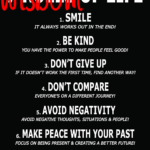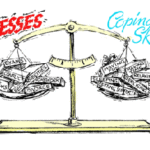
An Andersen folktale written about a vain emporer who gets exposed before his subjects, imparts a fairy tale lesson reminding us to be a little bit more aware of our circumstances, and to be comfortable sharing criticism, because a society in which we fear sharing the good and bad, means a society in which we’re taken advantage of.
Two con men arrive at the capital to meet with the emperor known to spend frivolously on clothing. Pretending to be tailors, they entice him with new robes with magical qualities – they’re invisible to people stupid or incompetent.
So goes the Hans Christian Andersen story.
The emperor hires them. As they toil away, the emperor’s officials check in on their progress, noticing that the loom is empty. The con men pretend to be working but there is obviously nothing there. To avoid being thought the fool, they pretend otherwise.
Finally, the emperor’s suit is finished and our con men pretend to dress him before he sets off in a procession throughout the whole city.
The townsfolk cheer and applaud the new look! Not wanting to appear inept or stupid themselves, the emperor proudly prances around with nothing on while the people of the realm encourage him. Until, that is, a child remarks that the emperor isn’t wearing anything at all.
The use of the story’s title refers to something widely accepted as true or professed as being praiseworthy, due to an unwillingness of the general population to criticize it or be seen as going against popular opinion. The phrase “emperor’s new clothes” has become an idiom about logical fallacies.
Everyone Should Be an Entrepreneur
You saw Silicon Valley On TV. You read the cover of Wired magazine while waiting to check out at the grocery story.
Shame on you for not being an entrepreneur.
Come on, we all can do it! That college entrepreneurship program told you so. And remember that local guest speaker to class last year, the one who runs the home grown startup accelerator? He said we can all do it too, with help of local mentors and those investors they know, waiting in the wings to shepherd you to brighter future of being an entrepreneur.
Besides, the job market is questionable and who wants to work for those terrible companies anyway? Be an entrepreneur!
Here’s what they don’t share
- Success is highly unlikely.
- You need money to make money.
- You need to gain expertise quickly.
- You will spend all your time on your business.
- Healthcare is expensive and you may go without insurance.
- You’ll have problems with others.
- Your mental health will be tested, severely.
- If you are one, you’ll usually feel like you don’t fit in.
Here’s the trick…
Entrepreneur doesn’t refer to owning a business, working for yourself, nor being a startup founder. An entrepreneur might be such things, and such people are usually not entrepreneurs.
Lets tackle these in a bit more detail so you appreciate that I’m not just complaining.
- Success is highly unlikely.
- The odds of winning at Blackjack in Las Vegas are 42.22%
- The odds of a startup being successful are 10% (and only about 1% raise capital and are substantial)
- 54% of all businesses, regardless of funding. Fail.
- Not many bet their future on being a professional gambler. The odds of this working out are worse.
- You need money to make money.
- We may not like the fact that that’s the case but it is.
- It takes, roughly, $15,000 on average, to capably start a business.
- You do not and will not get funding to start. That’s a terrible misconception. You won’t raise capital, if warranted at all, for 12+ months.
- You need to gain expertise quickly.
- The average age of a successful founder is 44
- A 60 year old founder is 4x more likely to succeed than someone in their 20s
- While you’re starting, your burning cash and time, and others are chasing your idea.
- You will spend all your time on your business.
- Entrepreneur is a personality trait, not a job. Some just are. Just as being introverted means you’re always that, so true is being entrepreneurial. Entrepreneurial people are the people who seem to be fixated on personally addressing problems and investing themselves in the risk of improving them. Not once, repeatedly; constantly.
- If you do start something, it’s not 9–5, it’s not easy money, and it’s not a 40 hour work week. It’s certainly not a 4 hour work week. It’s ALL THE TIME.
- You take out the trash. You do the bookkeeping. You promote, sell, build, and deliver.
- Healthcare is expensive and you may go without insurance.
- Healthcare is designed for individuals to buy directly, or for employers to provide as a benefit.
- In addition to that $15,000 just to start, tack on insurance for a year or more PLUS whatever income you personally need. From where is that coming?
- You’ll have problems with others.
- The #1 reason ventures fail: Your Team.
- People do not share your priorities, work ethic, values, nor economic circumstances. They may say they do, to try it with you; they don’t.
- Your mental health will be tested, severely.
- Studies continue finding that entrepreneurial people are among the most prone to mental health issues.
- You will be told no, repeatedly, you have to deal with everything, and your family will question you.
- Think of the most dangerous job in the world… industrial fishing in Alaska? Working an oil rig? Being entreprenuerial is that risk, but economically and socially.
- If you are one, you’ll usually feel like you don’t fit in.
- Entrepreneurial people work. They have jobs. That job probably doesn’t appreciate the risks they take.
- Entrepreneurial people risk everything they have. Families don’t take that too lightly.
- Entrepreneurial people are fixated and passionate to a fault. Friends and peers try to be supportive but can’t really help and usually don’t really get it.
Start a business.
Try being a founder.
Don’t misunderstand my answer. You can be your own boss.
But appreciate that the Emperor’s New Clothes is that doing so is among the hardest things in the world to do. Getting that entrepreneurship degree in college won’t make it easy and won’t land you a job; that’s a business (the school), selling people what they want.
All the books, magazines, podcasts, TV shows, and local “you can do it” cheerleading obfuscate the reality; most can’t. Most shouldn’t.
When you’re prepared for loss, failure, isolation, commitment, tenacity, perseverance, and living on nothing, THEN maybe give it a shot; not because someone else says it’s easy or that they’ll help you. You need to be more prepared for the very likely downside than living on the hopes and dreams perpetuated because a small fraction who try make it work.
I want to invite you to join me in such discussions live and together.
Join me online here





Entrepreneurship is not for everyone and that’s completely fine. People should focus on what they are good at and excel at that one thing.
Interesting read – feels
Cheers Jason Shuster. None of this is easy for anyone <3